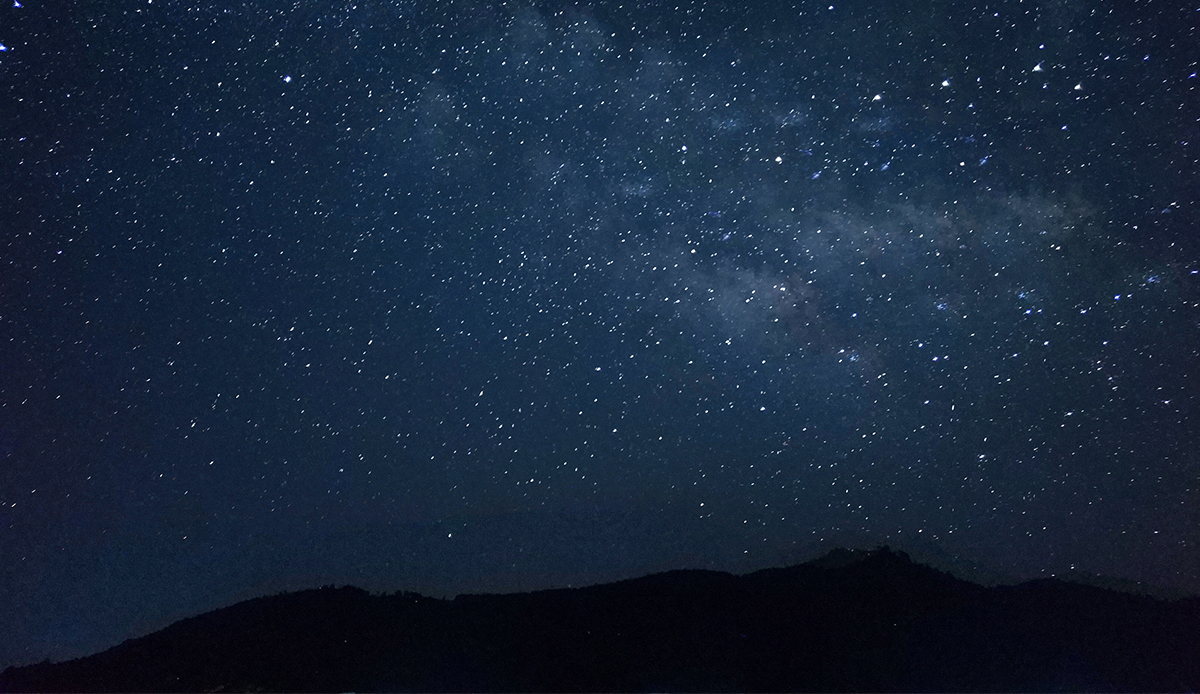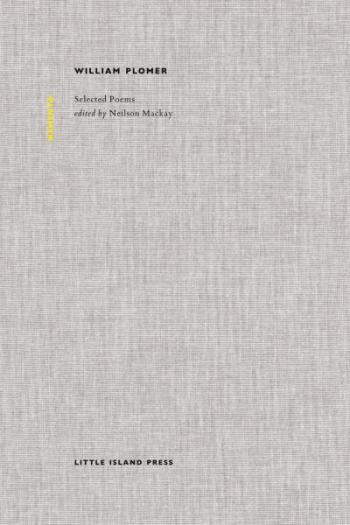Haunted Glass: A Review of Selected Poems by William Plomer
Selected Poems by William Plomer. Little Island Press, $20.32
A formerly prominent figure in the Bloomsbury Circle, William Plomer (1903-1973) once seemed poised for posthumous fame and critical glory. Yet besides one novel—Turbott Wolfe, a masterly exposé of South African brutality in the years just before apartheid legislation—and his edition of Kilvert’s Diary, none of his books are still in print. None, that is, prior to the publication of Neilson MacKay’s new edition of his poetry. MacKay has culled a representative selection from Plomer’s ten individual poetry collections for this Selected and has arranged the poems so that they divide into five sections that follow Plomer around the globe and track the chronology of his life: “In Africa” (early 1920s), “In Japan” (late 1920s), “In Greece” (1930s), “In England” (late 1930s and onward), and “Late Poems” (from 1966 to his death). Plomer’s humane liberalism and his global ethos during an age of British insularism explain why he was E. M. Forster’s self-confessed favorite poet: “For the roots of the tree go down to the lake / Where we all began, where we all belong. / Turn to the world, traveller. Take / What the sap forms; the stick is in song” (“A Charm Against Trouble”).
Though Plomer stands unclassifiably apart from contemporary schools and movements, one may discover in his work affinities with a number of major poets of the century. Here one detects a lyrical and pastoral echo of Georgian poetry, but subverted and infused with the modernist isolation of Edward Thomas: “A white stalk of uprooted sedge / Touches an aromatic nerve, / Recalls the past, as that recalled / Ancestral voices living still / In figures walking over graves” (“Unity”). The detachment of the individual may be a recurring motif of the twentieth century, but Plomer works against both self-effacement and narcissism. Usually there is a foregrounded “we” or “you” at work in his poems, and he just as often makes recourse to third-person narratives. Such forged connections are fundamental to his poetic vision, even in the Larkinesque “Death of a Hedge-Sparrow”: “This afternoon it stood alone, / Beside me, showed no fear, / Resting its head between its wings.” The poet professes his vital if lonely role to be “Sole witness” of this moment as life passes: “One last, fan-opening whirr / To full extent both wings, / In flight from life; / They slowly closed. / It shivered once; lay still.”
Though this death might be considered trivial or inconsequential—he was writing, after all, in an age of global war and holocaust—Plomer refuses to deny significance to any death. This is not a turning away from the human and toward nature: the hedge-sparrow’s death is a reminder that all deaths matter. And yet, against the social and political perspective of the MacSpaunday group, Plomer maintains an intensely personal focus. As the world awaits the start of another European war, Plomer turns his eye to two young lovers, soon to be divided: “As the golden grass burns out / In a cooling ash of dew / The lovers disembrace / And face the evening view.” For a brief moment, however, they can still take refuge in love: “Then arm in arm along the path / Silent they saunter away” (“September Evening: 1938”). In his response to the impending conflagration of world war, this is a poet who hearkens to the less politicized perspective of later Auden: the tragedy Plomer envisions is not the carnage that would unfold on battlefield and in concentration camps but the obliteration of ordinary life and love: “And here and there along the river-bed / The stranded fish gaped among empty tins; / Face downward lay the huddled suicides / Like litter that a riot leaves” (“The Silent Sunday”).
In his predilection for making poetry out of the ordinary things of ordinary life, Plomer’s poetic materials may seem Betjemanesque. “The Bungalows,” for instance, begins as a clever parody: “In lofty light the towers dissolve / Of yellow elms this tranquil day, / Crumble in leisurely showers of gold / All Turneresque in bright decay.” From this nostalgic opening, Betjeman would have progressed to gentle satire on the emptiness of middle-class lives. In contrast, Plomer embraces the “whimsy gnomes” of suburban gardens: less a mark of low-brow taste than a “Concession to the irrational, / The old, wild, superstitious past.” Yet Plomer joins Betjeman in giving assent to the quotidian: “The commonplace needs no defence, / Dullness is in the critic’s eyes.” And like Betjeman (and U. A. Fanthorpe, Anthony Thwaite, Peter Scupham, et al.), Plomer affirms the numinous. Finding the spiritual in suburbia is sufficient evidence of the mysterious working of grace: “Under these yellow-twinkling elms, / Behind these hedges trimly shorn, / As in a stable once, so here / It may be born, it may be born.”
How can faith survive the brutality of the world in which we live? It shouldn’t, and yet “Everything sings / in snowy stillness, / in marble wonder, / in formal myth, / believed because / impossible, / believed as only / a poem can be, / the anti-fact / of a holy spore / spreading the Word / unsaid before.” Plomer’s surprising religious perspective contains Audenesque echoes: Christ is a “saboteur / of received ideas”; whatever or whoever he was, whether human or divine, to Plomer he is “a sunrise / of love enlarged, / of love, enlarged” (“A Church in Bavaria”). The collection’s final poem—judged by MacKay to be the last poem Plomer ever wrote—embodies a medieval vision of consummate spirituality. “Painted on Darkness” bears quoting in its entirety and, in its extraordinary beauty and impassive clarity, requires no commentary:
A sunlit branch of four reflected roses
Bright on the darkened window of that room,
That locked and shuttered, memory-haunted room,
Startles by tint and stillness, perfectly composed.
Each rose transmuted, sweeter than itself,
In pure vermilion stands out strange and new
Against the haunted glass intensified,
Painted on darkness, as a poem is. ☐
Recommended
Nor’easter
Post-Op Appointment With My Father
Cedar Valley Youth Poet Laureate | Fall 2024 Workshop






